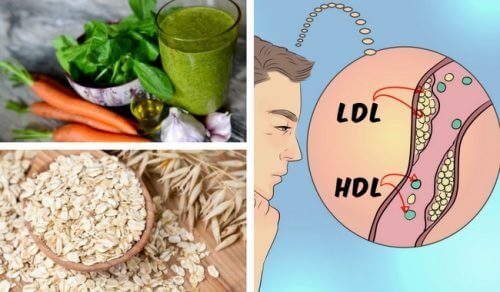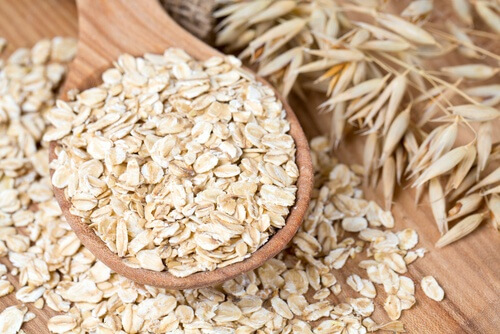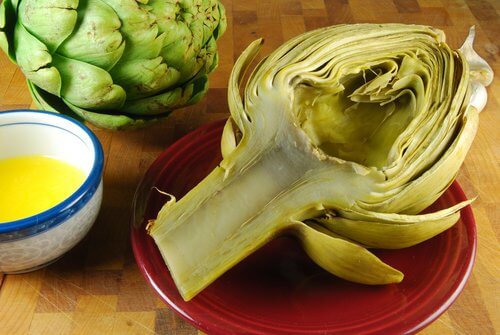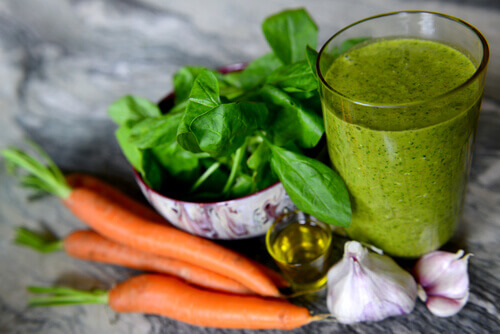Homemade Remedies That May Help Lower Your Cholesterol


Reviewed and approved by the pharmacist Lourdes Martínez
Did they just tell you that you have high cholesterol and you weren’t expecting this news? This is more common than you may think. Now you’re probably looking for a way to naturally lower your cholesterol levels.
Actually, if you really think about it, it’s not unusual. Commercialized foods contain many substances that cause this problem.
At the same time, our lifestyles continue to be more sedentary. Because of this, our bodies store almost all of the food that we consume.
General lifestyle tips to lower your cholesterol levels
If your cholesterol is over 200, consider this serious. It’s up to you to heed the warning that you are in a serious situation.
When this turns into a chronic illness, the risks are very important.
We are talking about the possibility of suffering cardiovascular problems, angina chest pain, arteriosclerosis or coronary disease. As you can see, this is not trivial.
Because of this, it is desirable to make significant changes in your lifestyle. Besides a low-fat diet, you should start to exercise.
Since the objective is to maintain a schedule for your routine, choose something that you can keep up with. For instance, walking has a lot of advantages but if it bores you, you’ll end up dropping it.
Therefore, the best choice is always the one that you will not give up. If none of the options appeal to you, try different things and then decide.
Remedies that may help lower your cholesterol
1. Oatmeal water

Oatmeal is rich in fiber and some people recommend it to combat cholesterol. It wraps the cholesterol molecules to purify the arteries.
Ingredients
- 1 cup of rolled oats
- 12 cups of water
- 1 stick of cinnamon
Preparation
- Put the oats in the blender, cover with a sufficient amount of water and blend.
- In a large pot, put in the rest of the water, add the oats and heat.
- Strain it and consume.
Way to consume
- If desired, you can put this in the fridge and drink up to a quart throughout the day.
We recommend:
2. Cabbage water
Again, the key is in the high content of fiber in cabbage. It’s simple to prepare, like the previous recipe.
Ingredients
- 1/2 head of cabbage
- 12 cups of water
Utensils
- A glass bottle
Preparation
- Heat the water and add the cabbage.
- Boil for 5 to 10 minutes.
- After boiling, drain the liquid and store in the bottle.
- Keep this in the fridge and drink cold.
Way to consume
- As in the previous recipe, you can drink as much as a liter every day.
3. Artichoke water

Ingredients
- 8 cups of water
- 2 artichokes
Preparation
- Heat the water until it boils.
- Wash, add the artichokes and let them infuse for 15 minutes.
- Strain and cool in the fridge.
Way to consume
- In this case, we should be drinking this liquid throughout the day, up to 1 quart.
4. Olive oil
Are you familiar with soluble fats? How about omega 3? Omega 3 is related to elements that limit bad cholesterol (LDL) and increase good cholesterol (HDL).
- In the case of olive oil, it’s best if you consume it without heating. High temperatures cause it to lose its properties and decompose.
- Heat destroys the molecular structure to the point of transforming the fat into a harmful substance for our health.
- You can also include avocado and fish, such as tuna and salmon, in your diet.
You may like:
5. Carrot and spinach juice to lower your cholesterol

Ingredients
- 3 carrots
- 2 spinach leaves
Preparation
- Chop the carrots into very small pieces
- Slice the spinach leaves.
- Liquefy everything. If it’s too thick, add water to get the desired consistency
Way to consume
- Drink this juice after each meal. Doing this will benefit your health tremendously.
To make these remedies effective, there needs to be a change in lifestyle.
To do this, be as realistic as possible. For example, if you decide to start running after a year of being sedentary, don’t give yourself a goal of running an hour daily. It needs to be a gradual process.
The same thing applies to food. You should not stop eating meat from one day to the next. Start by eliminating foods that contain the most fat. In time you will improve your general health.
All cited sources were thoroughly reviewed by our team to ensure their quality, reliability, currency, and validity. The bibliography of this article was considered reliable and of academic or scientific accuracy.
- Othman, R. A., Moghadasian, M. H., & Jones, P. J. H. (2011). Cholesterol-lowering effects of oat ??-glucan. Nutrition Reviews. https://doi.org/10.1111/j.1753-4887.2011.00401.x
- Komatsu, W., Miura, Y., & Yagasaki, K. (1998). Suppression of hypercholesterolemia in hepatoma-bearing rats by cabbage extract and its component, S-methyl-L-cysteine sulfoxide. Lipids. https://doi.org/10.1007/s11745-998-0233-7
- Salem, M. Ben, Affes, H., Ksouda, K., Dhouibi, R., Sahnoun, Z., Hammami, S., & Zeghal, K. M. (2015). Pharmacological Studies of Artichoke Leaf Extract and Their Health Benefits. Plant Foods for Human Nutrition. https://doi.org/10.1007/s11130-015-0503-8
- da Silva Dias, J. C. (2014). Nutritional and Health Benefits of Carrots and Their Seed Extracts. Food and Nutrition Sciences. https://doi.org/10.4236/fns.2014.522227
- Ko, S. H., Park, J. H., Kim, S. Y., Lee, S. W., Chun, S. S., & Park, E. (2014). Antioxidant effects of spinach (Spinacia oleracea L.) supplementation in hyperlipidemic rats. Preventive Nutrition and Food Science. https://doi.org/10.3746/pnf.2014.19.1.019
This text is provided for informational purposes only and does not replace consultation with a professional. If in doubt, consult your specialist.








